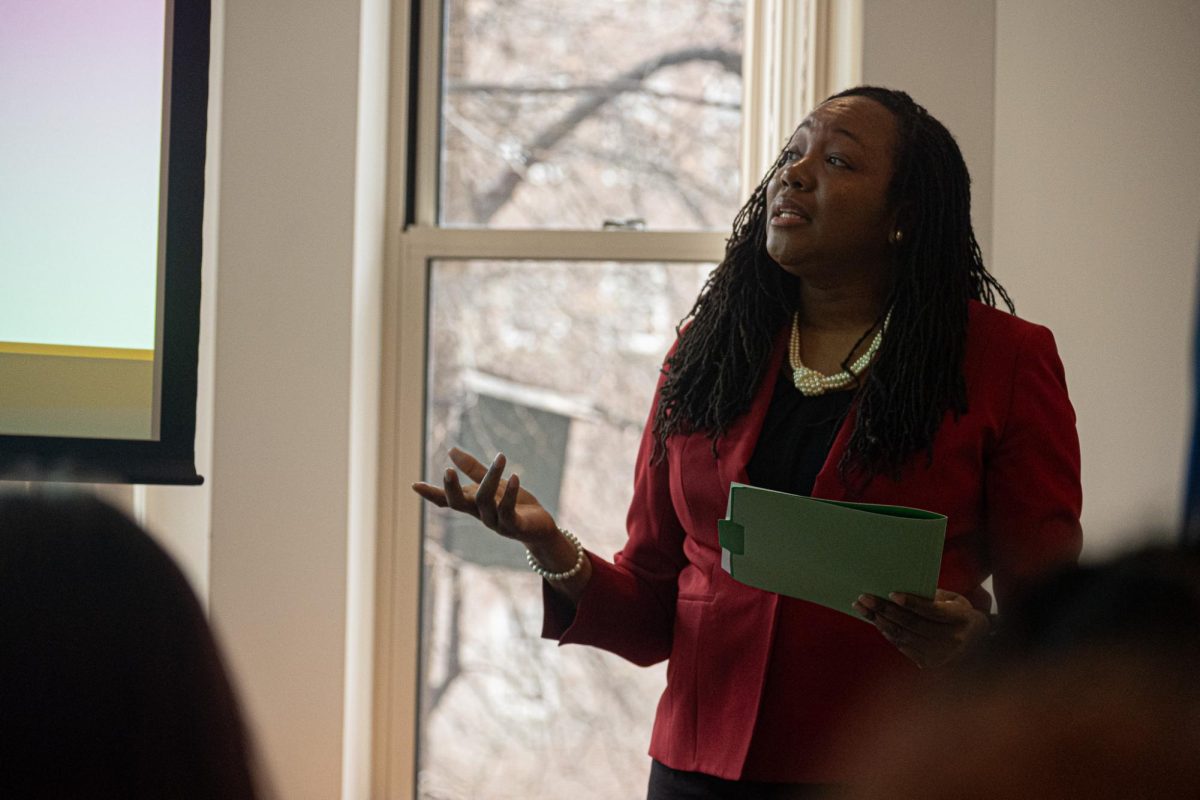Dr. Yolanda Covington-Ward delivered the second lecture in the Black Studies Program’s Sankofa Lecture Series at Suffolk University March 31. Covington-Ward is a professor and the chair of the W.E.B. Du Bois Department of Afro-American Studies at the University of Massachusetts Amherst.
The lecture focused on key points from Covington-Ward’s upcoming book regarding her research on mobility, shifting identities, and Diaspora-Homeland tensions in post-war Liberia. The project is based on 10 interviews she conducted with Liberians who returned to the country years after the Liberian Civil War.
“I was interested in the [returnees’] experiences once they went back to Liberia, and what their relationships were like with Liberians who hadn’t left,” said Covington-Ward.
Covington-Ward discussed the history of Liberia, which was founded as a colony in 1822 by the American Colonization Society to resettle freed and free-born African Americans in Africa. Cultural differences led to divisions between the indigenous populations and freed African Americans. Eventually, freed African Americans established themselves as the social and economic elite in the country, further complicating these divisions.
These divisions were one of the factors that led to the Liberian Civil War, which lasted from 1989 to 2003. The war displaced hundreds of thousands of Liberians around the African continent and abroad.
After the war, thousands returned to Liberia to rebuild, only to be faced with continued division. For the Liberians who stayed and suffered through the war, they saw those returning after the war as “congo.”
The Congo people or Congau people, also known as Americo-Liberians, are a Liberian ethnic group that can trace their ancestry back to the original settlers in 1822.
Another term many returnees are being called is “kwi,” a Liberian term used to imply westernization. Covington-Ward said the term is a method of enforcing societal control on people.
“This term has changed and spread to include more people,” said Covington-Ward. “There are groups you choose to be in and those that you are put in… if you are in the ‘in’ group, you can control others.”
One key point that Covington-Ward stressed is how this tension hinders the effort to rebuild the country after the war. The lecture mainly focused on the last two chapters of her book, which is planned to be released next year.
The Sankofa lecture series is designed to promote awareness of the history, culture, and societal contributions of people of African descent in the region, the nation and the world. The Black Studies program plans to do two Sankofa Lectures a year.








